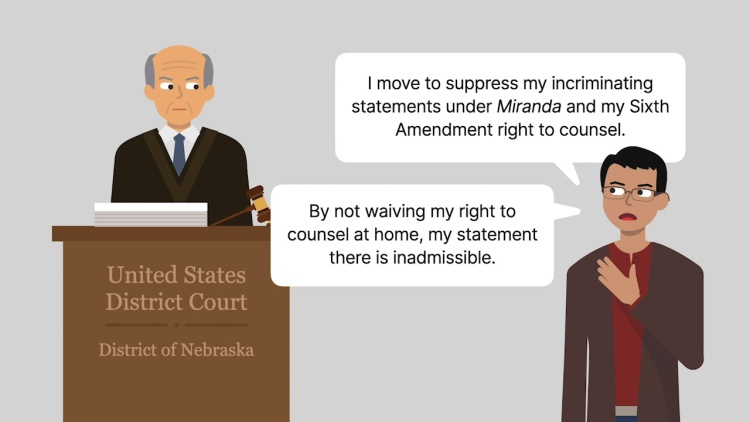Fellers v. United States
United States Supreme Court
540 U.S. 519 (2004)

- Written by Sean Carroll, JD
Facts
Fellers (defendant) was indicted by a grand jury for conspiring to distribute methamphetamine. After the indictment, police officers arrived at Fellers’s home to take him into custody. The officers informed Fellers that he had been indicted because of his affiliation with four other suspects. The officers named the other suspects, and Fellers acknowledged that he had used methamphetamine with the other suspects. The police took Feller to jail, where he executed a written waiver of his Miranda rights. When police questioned Fellers at the jail, he repeated that he had previously associated with the other suspects and made other incriminating statements. Fellers filed a pretrial motion to suppress the statements made before and after his arrest. A federal magistrate concluded that the statements made prior to arrest should be suppressed because Fellers had not been informed of his Miranda rights when the officers solicited the incriminating statements. The magistrate also excluded certain portions of Fellers’s postarrest statements as fruits of the prearrest statements offered without the benefit of Miranda warnings. The district court disagreed with the magistrate. The district court found that Fellers had voluntarily waived his Miranda rights at the jail and admitted all of his postarrest statements. Fellers was convicted after a jury trial. Fellers appealed the conviction and argued that the officers’ failure to administer Miranda warnings prior to arrest violated his Sixth Amendment right to counsel. Fellers asserted that his subsequent statements at the jail should have been suppressed as the fruits of illegally obtained evidence. The court of appeals found that the officers’ questioning at Fellers’s home was not an interrogation and did not violate Fellers’s Sixth Amendment rights. The court of appeals also concluded that Fellers’s statements at the jail were voluntarily given and admissible as evidence. Fellers petitioned the Supreme Court for review.
Rule of Law
Issue
Holding and Reasoning (O’Connor, J.)
What to do next…
Here's why 907,000 law students have relied on our case briefs:
- Written by law professors and practitioners, not other law students. 47,100 briefs, keyed to 996 casebooks. Top-notch customer support.
- The right amount of information, includes the facts, issues, rule of law, holding and reasoning, and any concurrences and dissents.
- Access in your classes, works on your mobile and tablet. Massive library of related video lessons and high quality multiple-choice questions.
- Easy to use, uniform format for every case brief. Written in plain English, not in legalese. Our briefs summarize and simplify; they don’t just repeat the court’s language.





